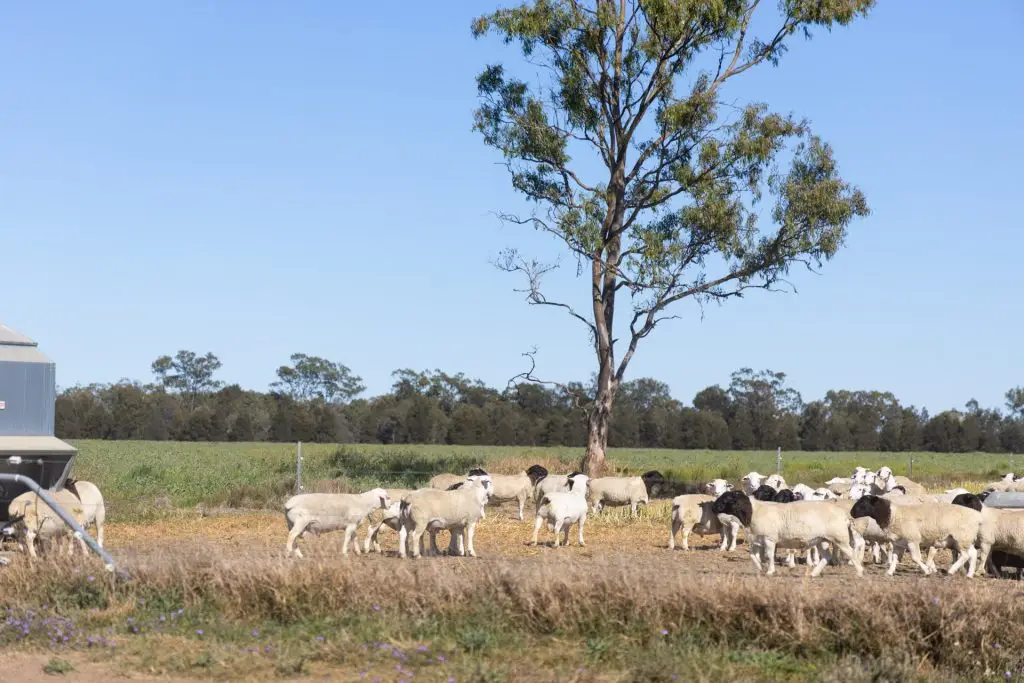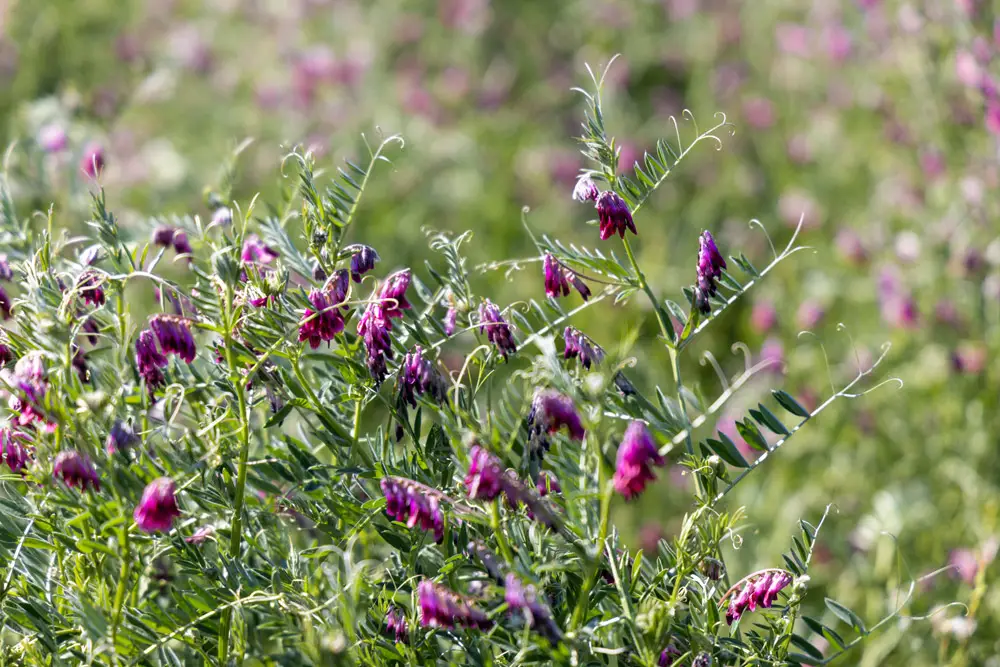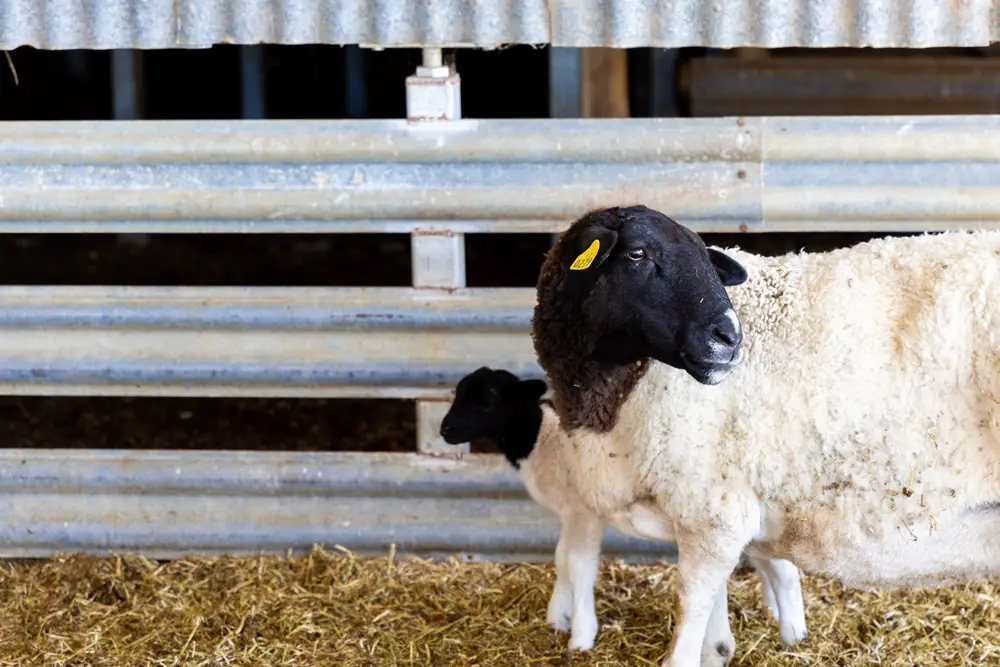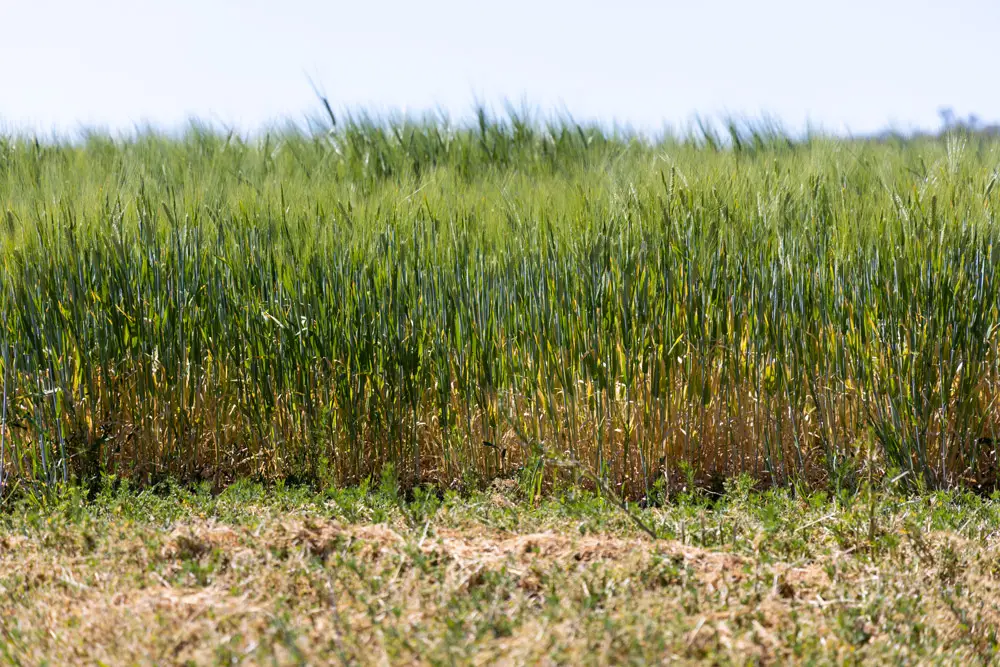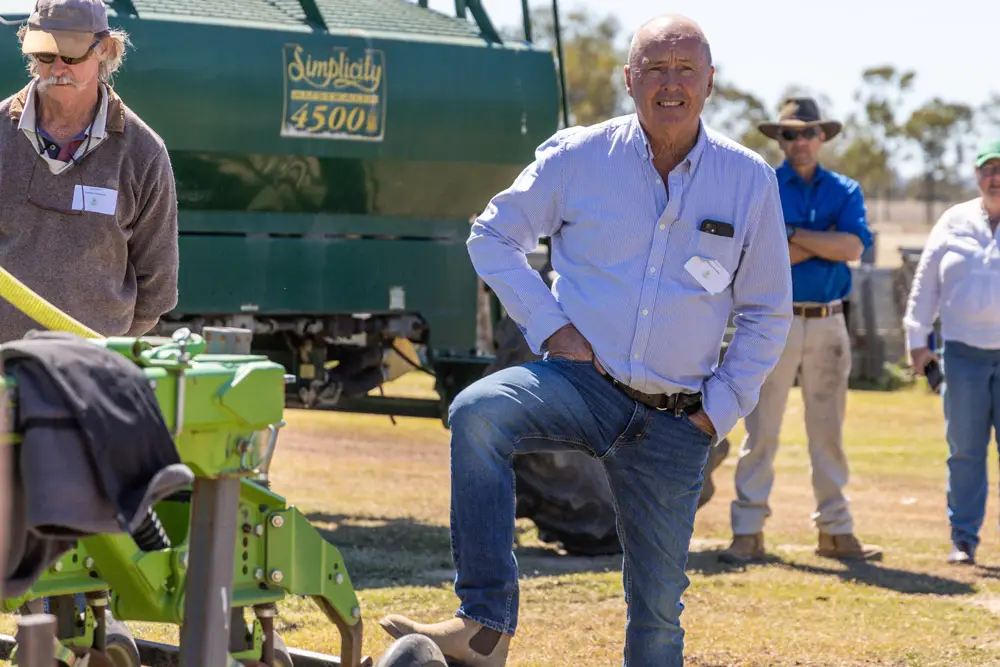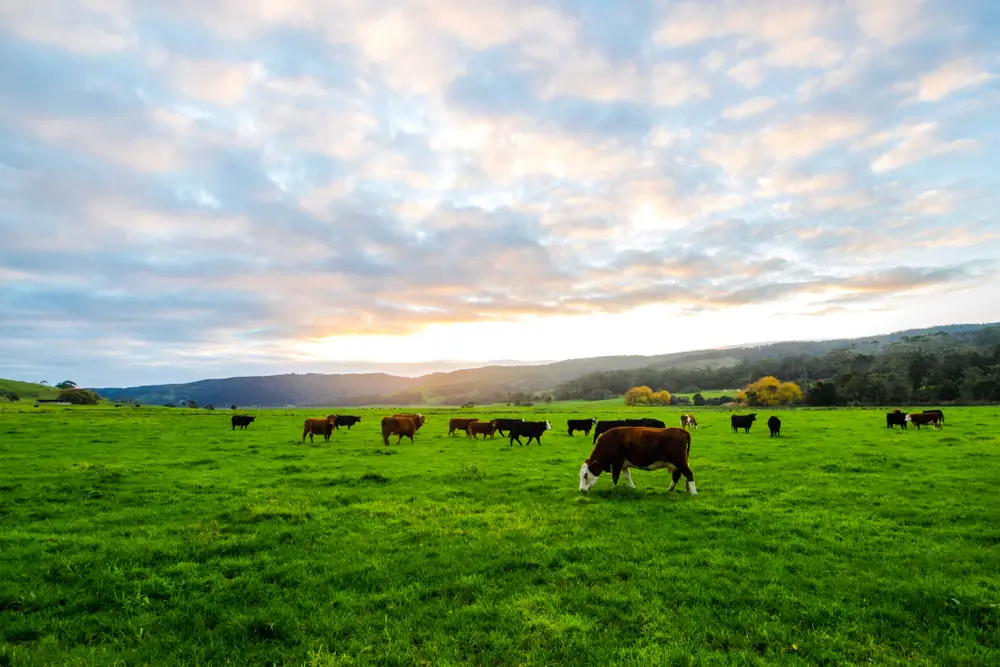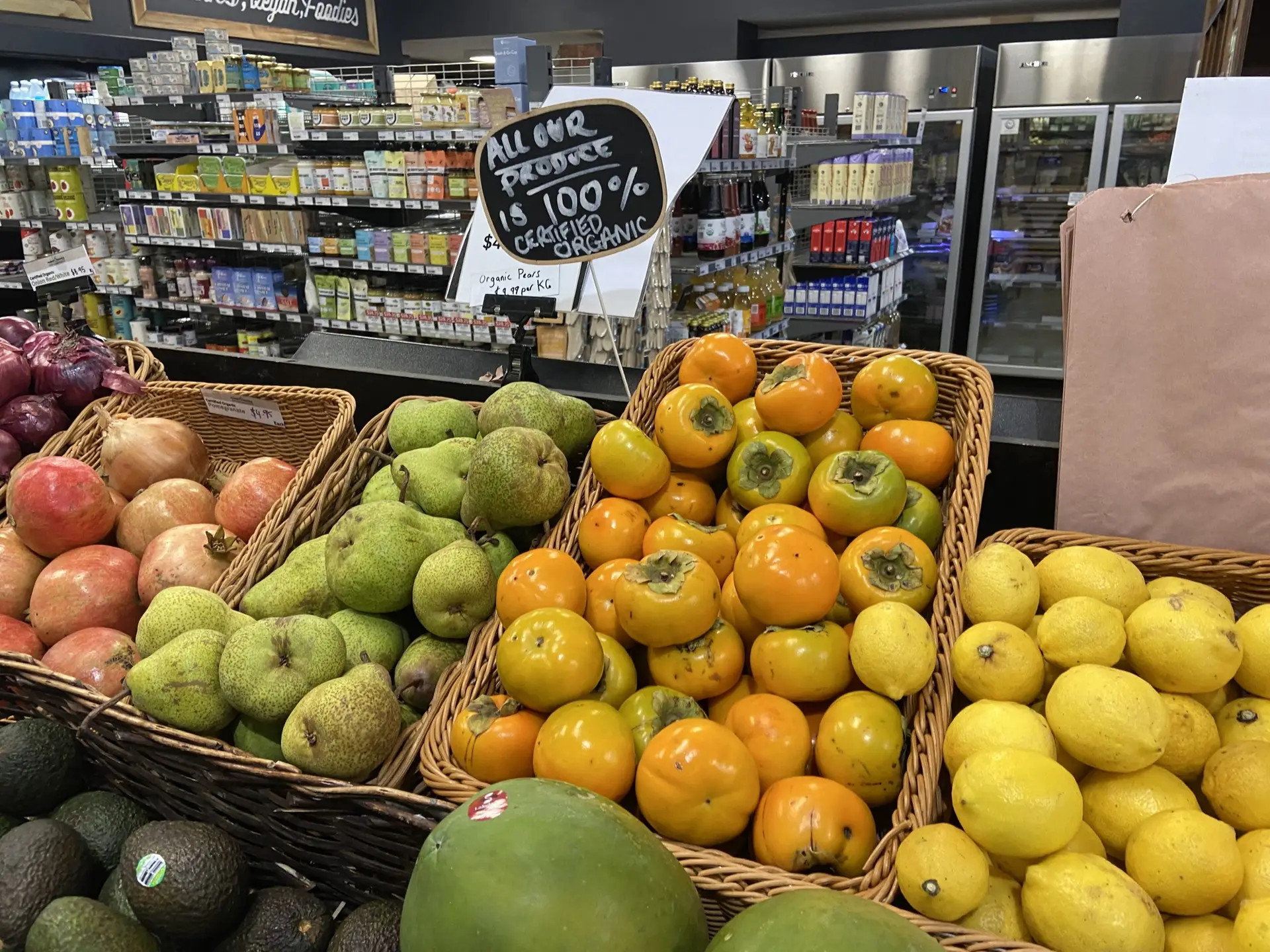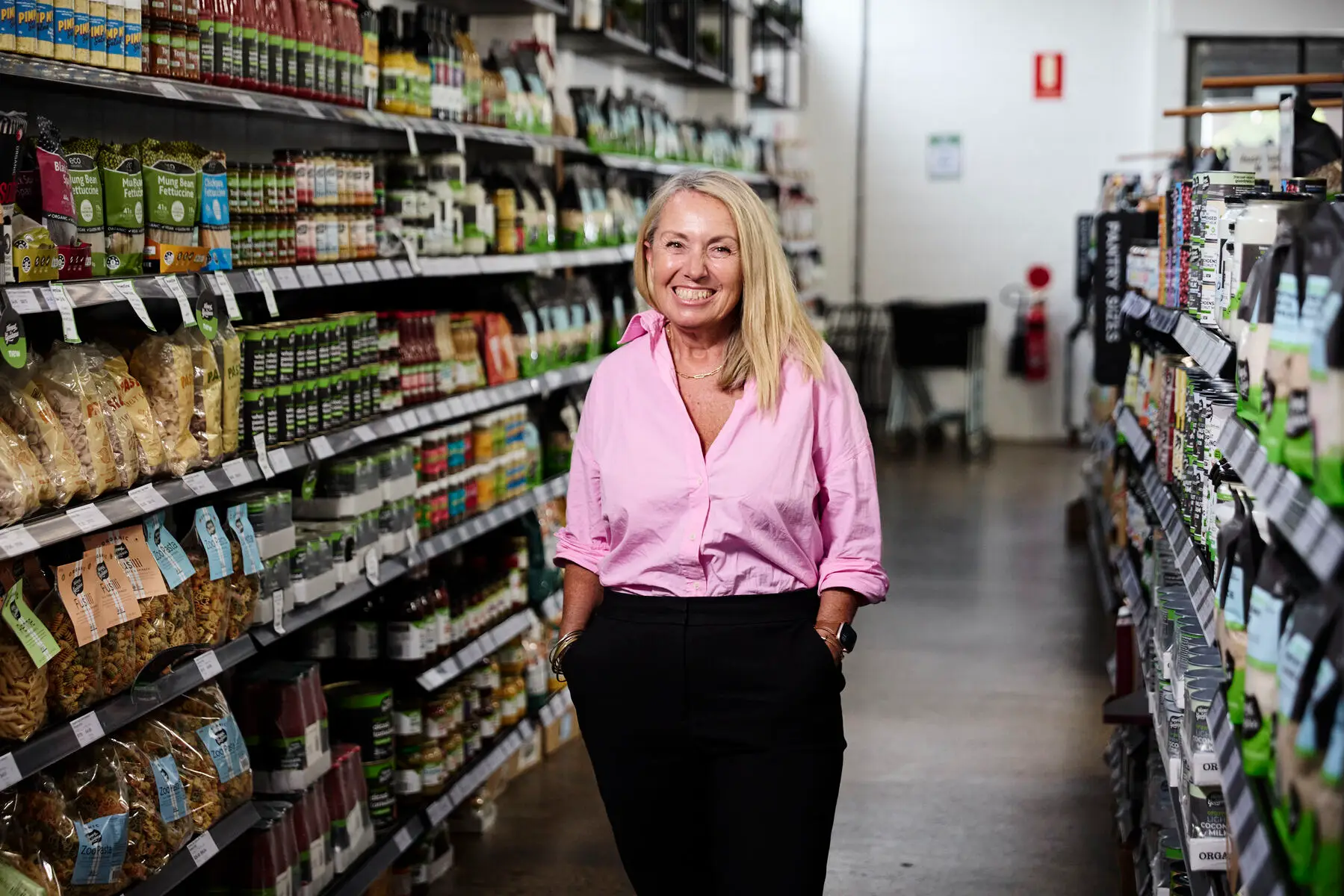Situated 15km from Millmerran on the Darling Downs, Bellevue Grazing Company manages 5,000 acres of land producing organic grain, prime lamb and stud Dorpers. The mixed enterprise is owned and operated by lifelong farmers David and Robbie Curtis and their daughter Sophie. Initially running Merino sheep, when wool prices crashed Bellevue imported Dorper embryos from Africa and began specialising in stud Dorper sheep and commercial prime Dorper lamb production.
David purchased the original 1760 acres of Bellevue property from an American family who decided to sell up and return home. Much of the soil had been damaged by the use of a disc plough that was used to chop up sticks and invert the clay to the topsoil.
“We couldn’t understand why the property was originally so unproductive and difficult to farm,” David recalls.
He encountered significant issues with weeds, soil drainage and water retention – critical factors to ensuring a successful farming business in the dryland area. After an initial consultation, commercial agronomists recommended going zero till and using chemical fallows with processed fertilisers and pesticides, totalling over $100,000 a year in costs with poor results.
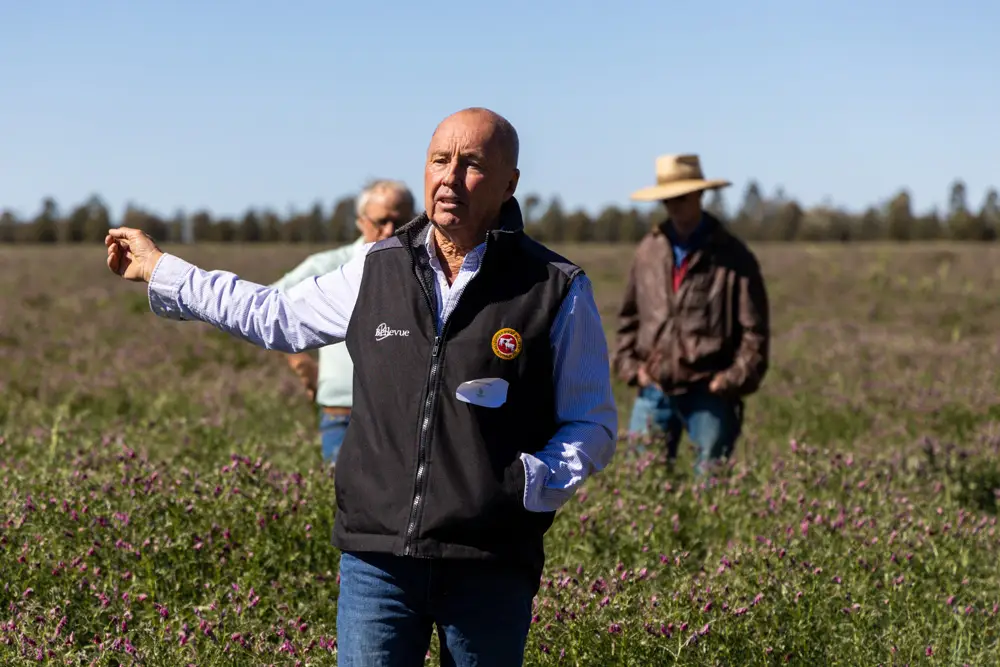
David became concerned about chemical use, human health and nutrient density of food he produced, resulting in his decision to transition towards organic farming as a way to improve soil quality, climate resilience and reduce the farm’s inputs. Purchasing additional property, building fences, supplying water to each paddock and planting 15km of tree lines has been ongoing over time. Most paddocks are now around 40ha for rotational grazing.
The family planted native windrows surrounding their fields to offer shelter for birds, beneficial insects and shade for livestock. The Dorper sheep are pregnancy scanned after each joining and separated according to the number of lambs they are expecting. A strict paddock rotation ensures parasite burdens are low with limited need for veterinary anthelmintics. Multispecies pastures are embraced by David as his sheep love the variety and diversity of species in their diet.
Rams bred for commercial producers are finished on pastures before being presented for sale at Bellevue’s on-farm sale in September and online sale in February. The full shedding characteristics of the Dorper breed means the old shearing shed has been repurposed into a beautiful multi-use room where AOL members met and were given a run-down of the Grain Day program and morning tea.
David is passionate about organic agriculture and improving the health of his land.
“After going through 5 years of drought, our reset was not to have bare soil. With our management, we could either move toward a desert or move toward a rain forest. We are trying to find ways to grow crops and pastures successfully with no or minimal tillage. So far, we are very happy with what we achieved,” David recalls.
David has also been trialling a number of different pasture mixes focusing on multi-purpose crops that provided animal grazing, feed, soil improvement and potential cash crops. He has worked with the CSIRO trialling a drought hardy brassica called Titan rapeseed. Direct seeding into grass pastures in autumn with oats, Poppany Vetch and
medics provides good groundcover and additional feed when grass frosts in winter.
Fava beans and field peas are planted in rotation between grains and pasture phases. The nitrogen-fixing plants improve soil health and can be harvested and sold whilst the rest of the plant serves as organic green manure or sheep feed. The extensive taproot of the broad bean helps combat soil compaction from grazing. David direct-seeded vetch into his pasture as a nitrogen fixer and also to provide winter grazing crops for his sheep. Walking into the field, the blooming purple vetch flowers gave no indication that they had already been grazed a few weeks before the AOL field day visit.
The drought has been tough on David, but tougher on his sheep. Being a stud breeder, the valuable genetics from years of selective breeding can’t be offloaded at market when required. Some of the sheep went directly through the butchers’ stream, while the remaining animals were fed through until the weather improved. A course with Peter Andrews has helped David look at new ways of spreading and holding water on his farm in wet times to limit the impact of drought going forward. Keeping pastures in good health and condition and maintaining cover is the future goal.
David’s progress would not have been possible without a like-minded community who were passionate about ways of working with nature and trialling new agricultural technology.
Learn more about Bellevue Grazing Company on their website: bellevuedorpers.com.au
Images by Louise Wright Photography
